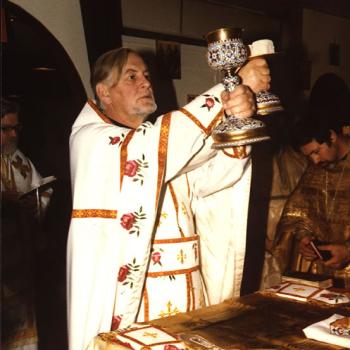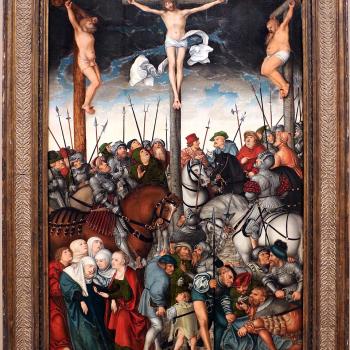(RNS) This Sunday (Nov. 2), on what is known as All Souls’ Day, Roman Catholics around the world will be praying for loved ones who have died and for all those who have passed from this life to the next. They will be joined by Jerry Walls.
“I got no problem praying for the dead,” Walls says without hesitation — which is unusual for a United Methodist who attends an Anglican church and teaches Christian philosophy at Houston Baptist University. . . .
Walls is a leading exponent of an effort to convince Protestants — and maybe a few Catholics — that purgatory is a teaching they can, and should, embrace. And he’s having a degree of success, even among some evangelicals, that hasn’t been seen in, well, centuries.
“I would often get negative reactions,” Walls said about his early efforts, starting more than a decade ago, to pitch purgatory to Protestants. “But when I started explaining it, it didn’t cause a lot of shock.”
Walls’ major work on the topic, “Purgatory: The Logic of Total Transformation,” was published in 2012 and completes a trilogy on heaven, hell and the afterlife. He also has a popular, one-volume book synthesizing his ideas coming out from Brazos Press, which targets evangelical readers, and is writing an essay on purgatory for a collection about hell from the evangelical publisher Zondervan.
Walls, and other theologians giving purgatory a second look, make three main points:
1. The word “purgatory” isn’t in the Bible, but the idea is there
The New Testament makes it clear that you have to be holy to enter heaven: “Without holiness no one will see the Lord,” as the Apostle Paul’s letter to the Hebrews says. “Nothing impure will ever enter” paradise, adds the author of the Book of Revelation. The usual Protestant explanation is that this transformation takes place in an instant, at the moment of death.
“So everyone believes in purgatory,” said Walls. “The only question is how long it lasts and how it happens.” For Walls, purgatory (or whatever you want to call it) is “a natural theological implication” that “makes sense of things that are taught in the Bible.”
[Keep reading. . . ]
I suppose this shouldn’t be surprising since so many Protestants–including many evangelicals–insist, as Roman Catholics do, that you have to somehow merit salvation. The imputation of Christ’s righteousness is not considered enough. You have to actually be righteous. And if you aren’t, then you can acquire actual merit by being punished for your sins and purged of your uncleanness in Purgatory. Though they agree in large measure with Roman Catholic soteriology, they don’t believe, as Lutherans do, in the sacraments, in which we made holy by being engrafted into the holiness of Christ. So of course those who recognize that we tend not to be righteous and holy when we die would need to believe in Purgatory, which would give us more time to achieve that holiness after we die.
In Catholicism, you even have to suffer the pains of Purgatory for sins that you have confessed and have received absolution for. Traditionally, you had to suffer the purging and painful fires of Purgatory for seven years for each mortal sin. That meant people believed they would be stuck there for thousands of years before they could enter Heaven. This, of course, made indulgences, by means of which the Church releases souls from Purgatory. (Though, one wonders, if the superogative merits of the saints can have this effect, why can’t the infinite merit of Christ? And if Christians “need” to be purged, why should indulgences release them of this requirement?) Today, Catholic apologists tend to say that time doesn’t exist after death, so the duration shouldn’t be an issue, even though they still speak of “temporal” penalties.
The main problem with Purgatory is that it minimizes Christ’s forgiveness. Being forgiven of our sins by God because Christ bore our sins and grants us His righteousness, in this view, is not enough. We still have to pay. We end up having to atone for our own sins.















